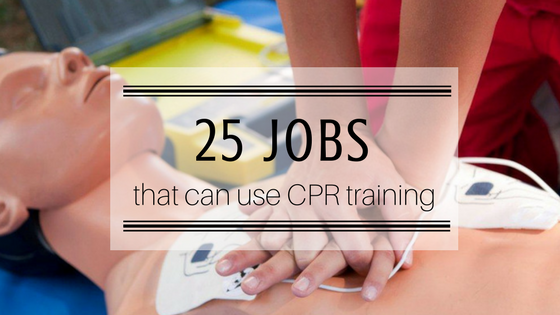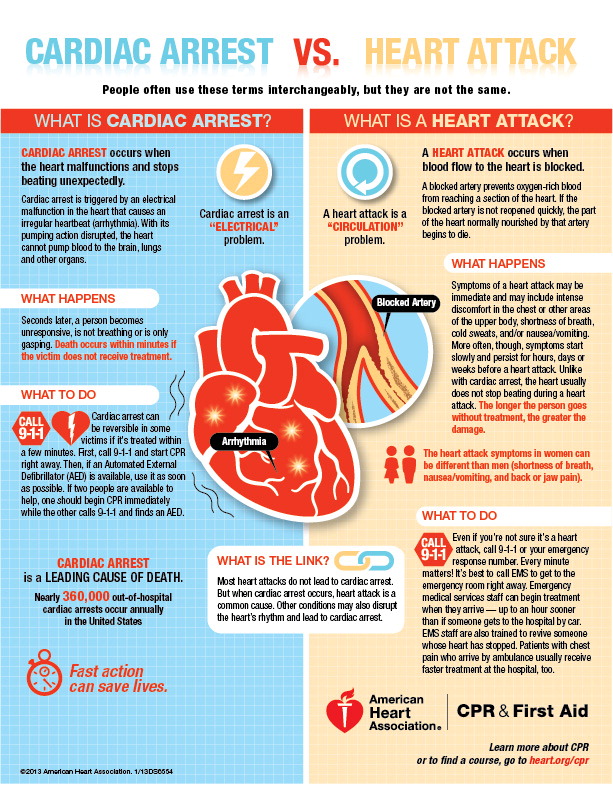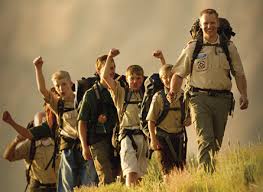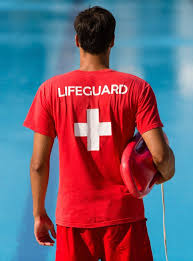25 Jobs That Need CPR Training

[adinserter name=”728 x 90 Leaderboard Active Desktop Tablet”]
[adinserter name=”Top Mobile Active”]

Why Learn CPR?
Cardiac arrests are more common than you may think. They can happen to anyone, anywhere, at anytime. With nearly 88% of all cardiac arrests happening outside of a hospital, knowing how and when to perform CPR is most likely to save someone you love. Unfortunately, 70% of Americans may feel helpless to do anything during a cardiac emergency because they either do not know how to perform CPR or they feel unprepared because their training has lapsed. If CPR is not started quickly after someone goes unresponsive and is not breathing, a victim can experience severe brain damage or death within minutes.

[adinserter name=”728 x 90 Leaderboard Active Desktop Tablet”]
[adinserter name=”Top Mobile Active”]
25 Jobs That Need CPR Training
1. Teachers
Children are more likely to suffer injury, illness, and choking before Adults would. First Aid and CPR are often required yearly training for teachers.
Recommended Classes: Heartsaver Pediatric First Aid CPR AED -or- Heartsaver First Aid CPR AED
2. Coaches
Cardiac arrest can occur at any time and with Coaches pushing other’s endurance and cardiac abilities, they are at risk of having to perform CPR. Sprained ankles, cuts, scrapes, broken bones, etc are common First Aid problems that coaches should know how to deal with. Knowing how and when to start CPR and mean also mean the difference between life and death.
Recommended Classes: Heartsaver Pediatric First Aid CPR AED -or- Heartsaver First Aid CPR AED
3. Students
SB 212 (O.C.G.A. § 20-2-149.1) was passed during the 2013 Georgia state legislative session that now requires CPR and AED instruction as parts of health and physical education programs in high schools. Being CPR certified prepares you to act in an emergency situation and can add valuable experience to your resume after graduation.
Recommended Class: Heartsaver First Aid CPR AED
4. Parents
Even though being a Parent is not technically a job, it often feels like one. Children are again the ones most likely to have problems, so it is inevitable that you would have to perform First Aid or CPR at some point. Being certified gives you the skills and confidence on what to do in case of an emergency.
Recommended Classes: Heartsaver Pediatric First Aid CPR AED -or- Friends & Family CPR

5. Counselors
Counselors often deal with individuals who are experiencing physical and mental issues. They log a lot of time with families and individuals while helping, all times that accidents can happen and someone will need to know how to respond to get an injured victim advanced care.
Recommended Classes: Heartsaver Pediatric First Aid CPR AED -or- Heartsaver First Aid CPR AED
6. Nanny or Babysitter
With parents needing to know how to deal with First Aid and CPR scenarios for their children, Nannies and Babysitters are watching kids while parents are away and should know the same skills. A lot of parents will not consider a nanny or babysitter that is not certified with First Aid and CPR.
Recommended Classes: Heartsaver Pediatric First Aid CPR AED -or- Heartsaver First Aid CPR AED
7. Day Care Workers
It is required that Day Care Workers maintain First Aid and CPR certifications during employment. They also need Fire Safety training, working on evacuations and disaster scenarios.
Recommended Class: Heartsaver Pediatric First Aid CPR AED
[adinserter name=”728 x 90 Leaderboard Active Desktop Tablet”]
[adinserter name=”Top Mobile Active”]
8. Boy or Girls Scouts
Both Boy and Girl Scouts teach the importance of being prepared for any situation. They often need CPR certification to complete training for earning a badge.
Recommended Class: Heartsaver First Aid CPR AED

9. Foster Parents
First Aid and CPR training is just one of the many requirements in becoming a Foster Parent. They need to know to deal with common First Aid problems with children or infants and when/how to CPR if necessary.
Recommended Class: Heartsaver Pediatric First Aid CPR AED
10. Social Workers
Even though social workers are not trained in medicine, they often deal with people with mental and physical issues. Accidents can occur in any setting and with most cardiac arrests happening outside of a healthcare environment, knowing First Aid and CPR as crucial to help the families and patients that are under their supervision.
Recommended Class: Heartsaver First Aid CPR AED
11. Athletic Trainers
Same as Coaches.
Recommended Class: Heartsaver First Aid CPR AED
12. Fitness Instructors
Same as Coaches. More emphasis needed on CPR as instructors are working with elevated heart rates and pushing limitations of students.
Recommended Class: Heartsaver CPR AED
13. Security Guards
Security Guards are responsible for maintaining a safe environment within a certain perimeter. Accidents with visitors, guests, employees, or other guards can occur while on duty and knowing what to do in case of emergency can help get the best care possible for the victim. Choking, Medical Conditions, Falls, and Cardiac Arrests are just a few things security should know how to deal with while watching others.
Recommended Class: Heartsaver First Aid CPR AED

14. Oil Rig Workers
OSHA requires that all Oil Rig Workers be certified in First Aid and CPR. Being in such remote conditions, working with heavy machinery, and being part of a team are all factors to consider in being able to get someone care in case of emergency. The first responder here is often another rig hand. The more you know, the safer everyone is more likely to be aboard the oil rig.
Recommended Class: Heartsaver First Aid CPR AED
[adinserter name=”728 x 90 Leaderboard Active Desktop Tablet”]
[adinserter name=”Top Mobile Active”]
15. Utilities Workers
Utilities Workers often work in bad conditions to help restore the things we’ve come to rely on in our lives. Phone, cable, power, and water workers need to know First Aid and CPR as they are often the first ones on the scene in case of an emergency and to be OSHA compliant. Electrocution, falls, bucket rescues, hot or cold environments for long periods of times, and working with heavy machinery are just are few reasons to know how to perform First Aid and CPR.
Recommended Class: Heartsaver First Aid CPR AED
16. Electricians
Often at a high-risk for safety, Electricians are exposed to the potential electric shock, high temperatures, toxic chemicals, fires, explosions and other scenarios on a regular basis. Working with these hazardous conditions, the ability to respond in case of an emergency situation is a must.
Recommended Class: Heartsaver First Aid CPR AED
17. Construction Workers
Construction work requires some of the highest levels of safety and insurance as far as work environments go. OSHA requires First Aid and CPR training because some of the more common construction injuries are already serious in nature. A large number of fatalities of construction workers take place in the industry due to common issues like electrocution, sudden fall, being injured by objects, machinery and/or construction materials.
Recommended Class: Heartsaver First Aid CPR AED

18. Jail or Prison Personnel
Jail and Prison Personnel deal with inmates in a variety of scenarios that can involve the need for First Aid and CPR. They are often exposed to unsanitary conditions, drugs, contraband, weapons, and violence that can endanger both the personnel and other inmates. Knowing what to do in case of cardiac arrest is pivotal for jail and prison personnel.
Recommended Class: Heartsaver First Aid CPR AED
19. Flight Attendants
Flight Attendants are often the only available staff on a flight that is responsible for helping in case of an emergency. They have to be equipped to handle First Aid, CPR, and AED scenarios both during flight and while at the airport for dealing with passengers.
Recommended Class: Heartsaver First Aid CPR AED
20. Tattoo Artists
Accidents can happen even in the artist’s chair. Tattoo artists should be prepared to deal with First Aid, CPR, AED, and Bloodborne Pathogens scenarios while applying their art.
Recommended Classes: Heartsaver First Aid CPR AED -&- Online Bloodborne Pathogens
[adinserter name=”728 x 90 Leaderboard Active Desktop Tablet”]
[adinserter name=”Top Mobile Active”]
21. Life Guards
All Lifeguards must be CPR and First Aid certified. They are responsible for others around water from falling to drowning. They must know how to perform CPR and First Aid with emergencies that can happen both in and out of the water.
Recommended Class: Heartsaver First Aid CPR AED

22. Servers
Servers work in busy environments where customers can choke, fall, or suffer cardiac arrest. Those environments make CPR and First Aid skills to know to ensure guest’s safety.
Recommended Class: Heartsaver CPR AED
23. Managers
Regardless of the type of management position, managers are responsible for both employees and customers well being. This includes retail, restaurant, small business, property, or other management positions where guests and/or employees are under your direct supervision. Knowing when to call 911 is often the the most important thing you can do.
Recommended Class: Heartsaver First Aid CPR AED
24. Real Estate Agents
With the majority of cardiac arrests happening outside of a hospital, it is inevitable that Real Estate agents might encounter scenarios to perform First Aid and CPR. Know when to call 911 and how to start CPR can mean the difference in saving someone’s life.
Recommended Class: Heartsaver First Aid CPR AED

25. Manufacturing Plants
All American Heart Association First Aid and CPR classes are designed to meet OSHA requirements. Employer must ensure prompt first aid treatment for injured employees, either by providing for the availability of a trained first aid provider at the work site, or by ensuring that emergency treatment services are within reasonable proximity of the work site. The basic purpose of these standards is to assure that adequate first aid is available in the critical minutes between the occurrence of an injury and the availability of physician or hospital care for the injured employee.
Recommended Class: Heartsaver First Aid CPR AED -&- Online Bloodborne Pathogens
Sources: American Heart Association
Disclaimer: There are ads and affiliate links within our posts. We earn a small commission if you do choose to use the links and they do not add any additional cost to you if you do use them. Products are recommended because they are useful and helpful, not because of the commission possibly earned. Only use the links if you believe they can help you or you are interested in learning more about an advertisement.
Proudly offering American Heart Association workplace CPR training classes in the Greater Atlanta area. 3 local offices, online and classroom options, and cards are issued at the time you complete training. ACLS, CPR, BLS, First Aid, and PALS classes are available.
25 Jobs That Need BLS Training
[adinserter name=”728 x 90 Leaderboard Active Desktop Tablet”]
[adinserter name=”Top Mobile Active”]
